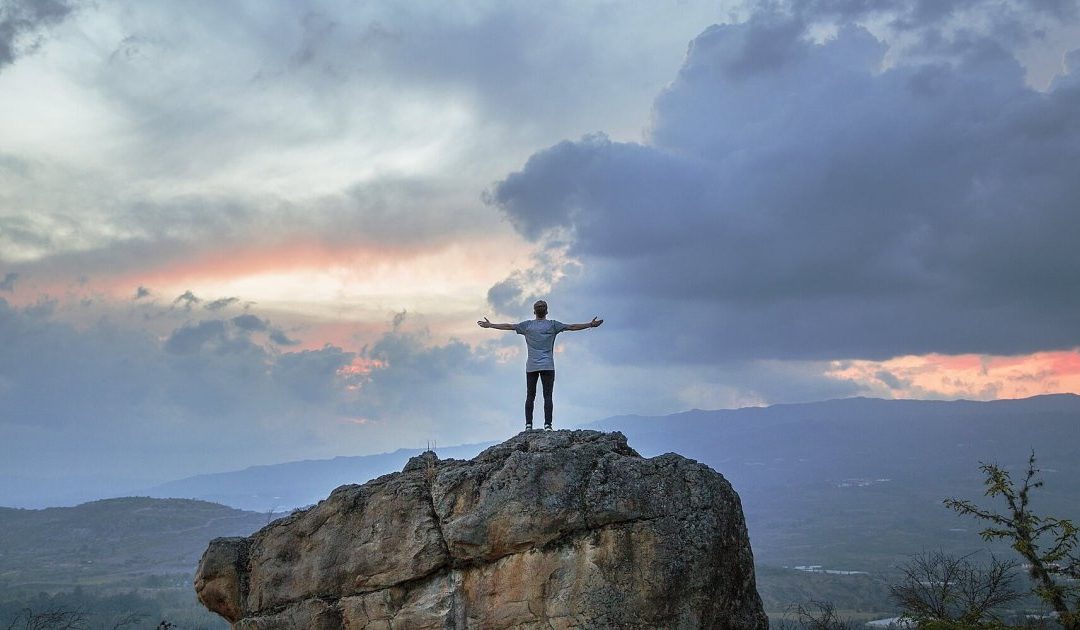Two weeks ago I completed my first Vipassana retreat, a ten day meditation course where participants, without talking to each other, meditate ten hours a day from half past five in the morning until nine in the evening. I hardly need to mention that it was extremely tough and demanding event while at the same time inspiring and occasionally quite nice. In this blog post I will focus on my thoughts on how this meditation might affect my project, the NVC trip.
Something I have been practising before the retreat, has been strengthened during these ten days, namely the ability to endure. Our brain like quick rewards. If there are two ways to reach a goal, we will gladly take the easiest one. This is many times both effective and wise. During almost the entire human history, when our access to energy was limited, it was sane to go for ease. Today, this tendency of the brain results in both bodily and planetary ill-health. We move less and eat high-processed food, which results in overweight and welfare diseases. If we can, we choose the simplest and fastest means of transport – the car and the flight – instead of using our bodies for movement.
When I sat meditating between 04:30 and 06:30 the first morning, my brain yelled at me: “This is boring! It never ends! What have you done to put yourself in this situation?!” When I was 16, I saw Indiana Jones and the Temple of Doom. When the movie was over I was surprised, it felt like half an hour had passed. Now, when I sat and meditated, it felt like the time would never end. Two hours felt like an eternity. “Oh my God!” I thought, “will this go on for ten days?”
As the habitual people we are, changes and new things often feel uncomfortable. Most of us don’t like changes. Our brain resists when we do not walk the same tracks as we always have done. But if we give ourselves time, the new uncomfortable way will soon turn out as a familiar habit. Already after a few days, the two hours did not feel like an endless time. Sure, two hours is still quite a long time, but I didn’t sit constantly wanting the gonggong to sound soon.
The same was true for the sitting meditation posture. I was used to my half-hour meditation. Often I have been able to sit in the same position for half an hour and sometimes I have had to change my body. Now we would sit one, one and a half and two hours in a row several times a day. My body protested violently and I changed positions quite often. After a few days we were instructed that during the three hour of group sessions we had every day, we were supposed to sit with “strong determination”; for an hour we would keep our eyes closed and not move hands and feet. When I heard this, I became very nervous. I bent over and sat down with my feet on the floor and leaned my arms and head over my knees to be able to endure for an hour if possible. After much pain and suffering, I managed to follow the instructions, but the position was probably not the best looking meditation position in history. Afterwards I went to the teacher and said I needed a chair; I would not be able to carry out those instructions three hours a day for the remaining days. He answered calmly that I didn’t need a chair, I would just keep trying not to change positions, but of course I could move if I had to. I thanked and the following days I actually managed to follow the instructions, but now and then I was leaning the upper body in different directions. Next to the last day I actually managed to sit completely still all three sittings, though I had pain both in the back and in the chest.
During one of the sessions, something exciting happened. Our meditation instructions were to only observe our body sensations without valuing them or trying to change them by having more of pleasant emotions or getting rid of unpleasant feelings. A bit like the attitude “this will also pass”. During this sitting I had my usual pain in the upper body, but it was as if I didn’t value it. I just looked at the pain, realizing that I didn’t want the hour to pass. Rather the opposite. I got into some kind of flow where I could be with the pain and it was perfectly all right. Rather than wishing it to be over, I was only present without identifying myself with any suffering.
All this may sound like some sort of self-chosen torment, or as my kids said when I read the rules for the retreat out loud: “It sounds like you’ve got some kind of punishment”. I think the ability to endure will help me during my NVC trip. I hope to enjoy my adventure as much as possible, but there will no doubt be moments when I will have thoughts like “I wish this would be over”. If we want to achieve something that‘s not automatically fulfilled, there will probably be moments when we just want to quit. In these moments, the ability to sacrifice now to obtain later is crucial for whether or not I will complete my adventure.

